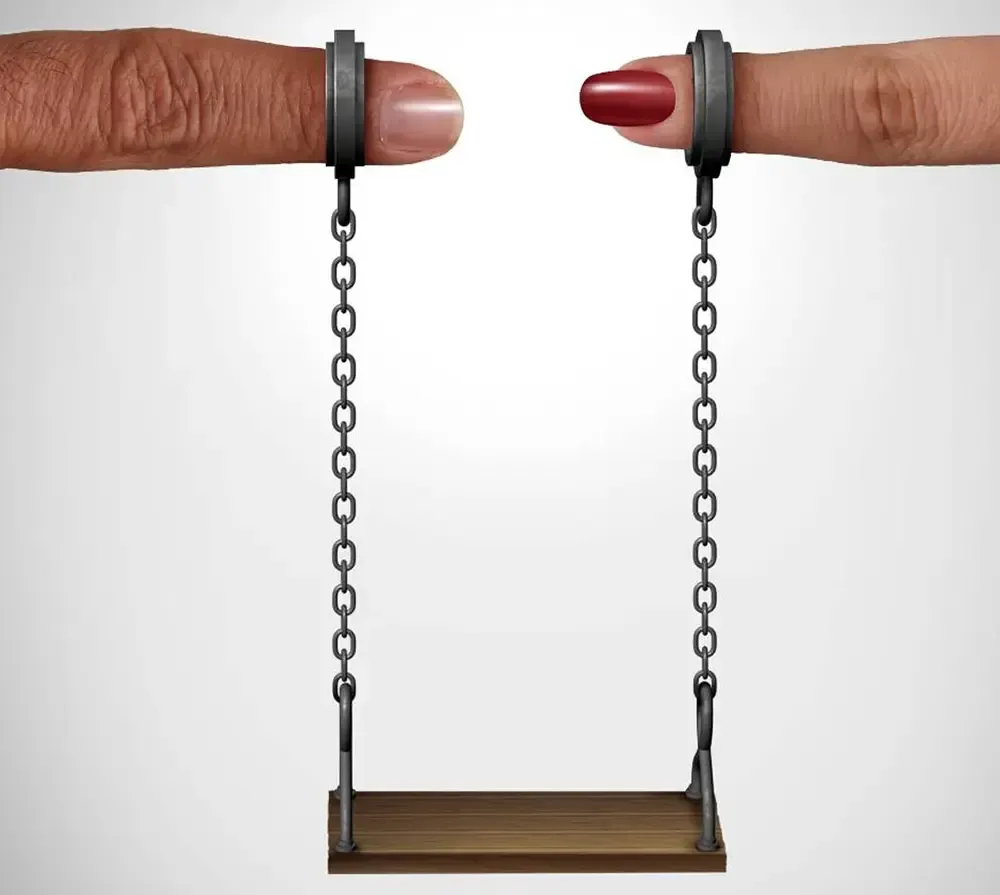Tips for Successful Negotiation
Imagine if all attorneys could be cost-effective, problem-solving peacemakers.

(Excerpted From a presentation to attorneys by Howard S. Mendelson Esq. at recent New Jersey legal conference)
IMAGINE, if all attorneys could be cost-effective problem-solving peacemakers; if all attorneys recognized that, but for the minority of cases that are sadly driven by egos and positions rather than rational problem-solving founded upon mutual goals and acquired trust, the vast majority of the cases all of us have or will ever be asked to handle call upon us to utilize our skills of negotiation to generally get our clients the results they’re looking for quickly and, just as importantly from our perspective, result in payment and referrals moving forward. As any seasoned litigator will attest, even when your client is 100% correct and you know you could win every contested issue if you tried the case, the costs of litigation and trial, the inevitable delays associated with litigating and trying the matter to conclusion, the present value of real money as opposed to a pending claim, and continued animosity by and between the parties, are all legitimate reasons for resolving rather than litigating even a case you consider to be a “slam-dunk winner.” While I’m fond of saying “settle your losers and try your winners,” in a way, any case that goes to trial is a “loser”; ethical lawyers who exercise appropriate client control should generally be able to settle rather than litigate the disputes their clients come to them to resolve. Smart clients resolve their matters and have money to pay their clients. Not so smart clients insist upon being “right” and litigating their matters despite the obvious advantages of simply “getting it done” in accordance with their attorney’s recommendations; and those same not so smart clients may not have the money to pay their attorneys if they don’t resolve the litigation and, sadly, may choose to blame their attorneys if, for whatever reason, the client perceives the adjudicated result to be unfair to them. Client control is accordingly key; most of the lawyers hearing this webinar would prefer happy clients who can afford to pay their legal bills and will refer new clients to the attorney who wisely resolved their matter without the costs and acrimony of litigation.
Like life itself, negotiation is indeed both a skill and an art; we must use both our heads and our hearts, to cost-effectively problem-solve and, in so doing, make peace, get it done, and get paid. Successful negotiations are not about taking positions; successful negotiations are about empathy and patience which many times our clients may not be able to successfully navigate without our assistance. The successful settlement of a dispute accordingly rests upon not only being prepared with the facts and understanding your client’s position; if we as attorneys are truly committed to settling the matter rather than exchanging discovery and otherwise “litigating” a dispute, we must initially be able to convince our clients to relinquish their understandable focus on their positions and how “right” they understandably perceive they are and to, instead, have them focus on establishing procedures by which each party can be fairly and cost-effectively be heard as to their underlying needs, fears, and objectives without the costs and acrimony of litigation.
Rule 408 - Settlement Offers and Negotiations
When a claim is disputed as to validity or amount, evidence of statements or conduct by parties or their attorneys in settlement negotiations, with or without a mediator present, including offers of compromise or any payment in settlement of a related claim, shall not be admissible to prove liability for, or invalidity of, or amount of the disputed claim. Such evidence shall not be excluded when offered for another purpose; and evidence otherwise admissible shall not be excluded merely because it was disclosed during the settlement negotiations.
- Develop a litigation strategy for each individual case.
There is a temptation, especially in high-volume practice areas like personal injury, to view a case just like any other case that has a similar fact pattern. While it’s important to apply lessons from previous experiences, you should avoid a boilerplate, “this is what we always do” approach. Discuss your client’s objectives candidly at the start of the litigation and throughout. From a defense point of view, the client usually wants to end the case as inexpensively as possible, but not always. The client may want to demonstrate its willingness to defend cases it views as meritless rather than pay a nuisance settlement. The client’s view on litigation may change over time. For example, I conducted a settlement conference where the plaintiff’s case was not very strong, but it received a better settlement than the facts of the case would otherwise suggest. On the day of the settlement conference, the defendant company was in the process of being sold, and the owners wanted to eliminate any contingent liabilities. - Identify, gather, and produce the most important information early.
Settlement negotiations are most effective at the proverbial sweet spot, when each side has the information it believes it needs to make a judgment about settlement but before discovery expenses allow the sunk costs mentality to take hold. As early as possible, identify the information that would make the most difference to both your client’s and the opposing party’s view of the potential risk. If the information the other side wants most is discoverable, it’s almost always in your client’s interest to produce it before the settlement negotiations. A party always assumes that withheld information is favorable to its side, and it calculates its settlement position accordingly. A classic example is a defendant who argues that a judgment would be uncollectable. I have never seen a plaintiff reduce its demand on that basis without first seeing credible financial information from the defendant. - Look for settlement opportunities.
Windows of opportunity for settlement open at various times in a lawsuit. For a defendant, it’s almost always worthwhile to ask the plaintiff’s lawyer during the first phone call, “What is your client really looking for in this case?” The answer to that question will tell a lot about whether to start negotiations then or wait. Another opportunity is when the most important information has been gathered; for example, when the key witnesses have been deposed. Yet another opportunity is at a hearing in court. Most judges will ask at a status hearing whether the parties have talked settlement. Before appearing at the status hearing, decide with your client how you want to use this opening: to get a settlement conference with the judge, to start lawyer-to-lawyer settlement talks or to discuss the possibility of private mediation. While you can call opposing counsel at any time, scheduling a private mediation or judicial settlement conference requires matching the parties’ schedules to the judge’s or mediator’s schedule. It’s important to foresee and thus schedule settlement opportunities early. Waiting until a summary judgment motion has been filed risks missing the window of Fopportunity. A defendant that has invested significant fees in discovery and the summary judgment motion usually wants to see if that will end the case. Plaintiffs are rarely sufficiently intimidated by a summary judgment motion to reduce the demand dramatically. - Consider the best context for settlement discussions.
Settlement talks can take place in a number of contexts. Direct, lawyer-to-lawyer talks can be effective when the lawyers have a good rapport and the necessary authority from their clients, and when money is the only (or primary) topic of negotiation. They are not as effective when the clients want to control the negotiation or there are many variables to the settlement. A settlement conference with a sitting judge works well when one party wants “a day in court.” Judges, however, can give only a limited amount of time to any particular case, and only when their calendars permit. Not every judge wants to conduct settlement discussions or has mediation skills. The fact that a settlement conference was held and whether it resulted in a settlement will be on the docket available to the public and media. A private mediation is completely confidential. The parties can choose the mediator and schedule a convenient time and place. The mediator will be available for as much time as the parties need, which can be important in a business dispute with a number of aspects to work out.


